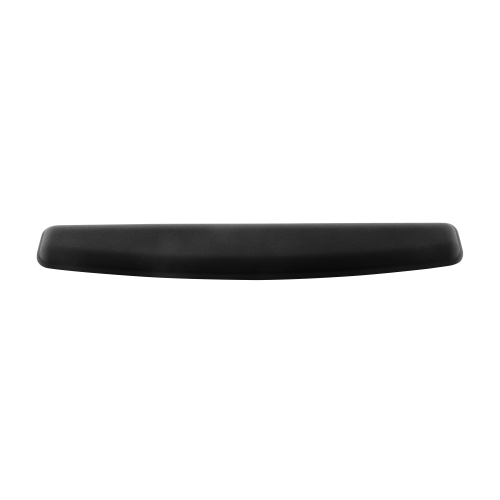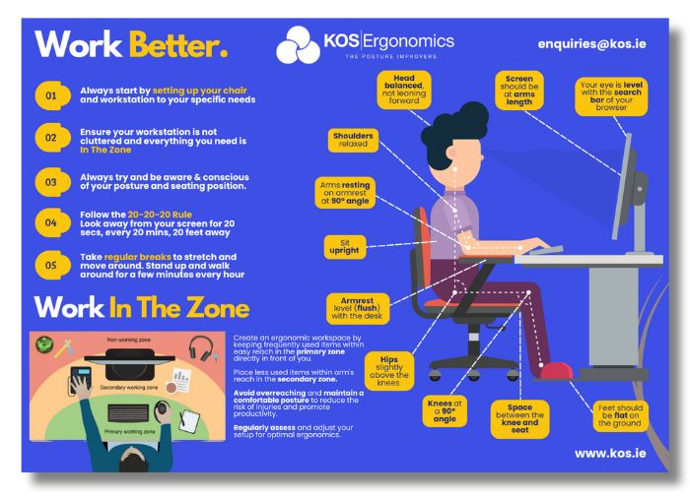
PI Keyboard Wrist Rest WR1 for RSI Relief
1
Comfort That Works as Hard as You Do
Long hours at the keyboard shouldn’t leave you with aching wrists or nagging strain. The PI WR1 Keyboard Wrist Rest is designed to support your hands where it matters most — reducing fatigue, improving posture, and helping prevent repetitive strain injuries (RSI). Whether you're deep in code, managing compliance, or working from home, this palm rest keeps you comfortable and focused.
Keyboard Wrist Rest Ergonomic Benefits & Proof
Wrist Support: Reduces Fatigue and Boosts Comfort
Typing for hours can cause tension in your wrists and forearms. The WR1’s ergonomic profile cushions your palms and encourages natural wrist alignment. That means less strain, more comfort, and better typing posture — especially during long workdays.
Low-Friction Fabric Surface: Smooth, Stable Control
The cloth surface is engineered for low friction, giving you precise mouse control without resistance. It’s ideal for IT professionals and homeworkers who rely on accuracy and speed. Plus, it stays cool and breathable, even during extended use.
PU and Silicone Construction: Built to Last
Durable yet lightweight, the WR1 combines PU and silicone materials for long-term resilience. It won’t flatten or warp over time, and it’s easy to clean — making it a smart investment for any workstation.
Anti-Slip Base: Stays Put, No Distractions
The WR1’s base grips your desk firmly, preventing unwanted movement. Whether you're working on a slick surface or a cluttered desk, this wrist rest stays exactly where you need it.
Keyboard Wrist Rest Ergonomic Benefits
- Reduces wrist strain and fatigue
- Helps prevent RSI and carpal tunnel symptoms
- Promotes neutral wrist posture
- Enhances typing comfort and accuracy
- Ideal for long hours at the desk
- Suitable for IT, H&S, and remote workers
- Revolutionary Design Permits Natural Hand & Wrist Movement
- Tracking Surface Provides Smooth & Precise Mousing
- Non-skid Natural Rubber Back
- Trace amounts of latex.
- Not recommended for those with latex allergies.
Frequently Asked Questions
A: This is an online ergonomic training course designed to teach participants how to assess Visual Display Units (VDU) / Display Screen Equipment (DSE) safely and in compliance with Irish and European health & safety regulations. It covers workstation assessments, ergonomics, and MSD prevention.
A: This course is suitable for anyone responsible for workplace safety or office ergonomics, including:
-
Health & Safety managers or consultants
-
Health & Safety representatives
-
Occupational health professionals
-
Facilities management staff
-
Architects involved in office design
-
Office managers and business owners
A: No. This beginner-friendly online DSE/VDU course is suitable for anyone, regardless of prior ergonomics or health & safety experience.
A: The course is fully online via Microsoft Teams, featuring interactive lectures, group exercises, explainer videos, polls, and practical workstation assessments.
A: The course runs for 1 full day (9am–5pm) with breaks.
A: The course is delivered by highly experienced ergonomic and health & safety professionals from KOS Ergonomics, who work with leading Irish companies to reduce workplace risks and improve office ergonomics.
A: Yes. Participants who successfully complete the theory exam and practical assessment will receive a KOS Training Academy Level 1 VDU / DSE Assessor Certificate.
A: You’ll need a computer or tablet with a camera, microphone, and stable internet connection. A typical home or office workstation is sufficient for the practical exercises.
A: Key topics include:
-
Ergonomics and anthropometrics for office work
-
Hazards and risks associated with VDU/DSE use
-
Legal requirements under Irish and EU legislation
-
Workstation setup, environmental factors, and emerging trends (hot-desking, sit-stand desks, home working, laptop/tablet use)
-
Practical assessment and evaluation techniques
A: Yes. The course covers Regulation 72 of the 2007 Safety, Health & Welfare at Work Regulations, along with European Directive 90/270/EEC to ensure compliance for all EU countries.
A: Absolutely. By training staff as certified VDU / DSE assessors, your organisation can reduce musculoskeletal disorders (MSDs), improve employee wellbeing, and ensure compliance with legal obligations.
A: Yes. Participants have access to KOS Ergonomics’ expert advice and resources for any follow-up questions related to workstation assessments or ergonomics.

To install this Web App in your iPhone/iPad press ![]() and then Add to Home Screen.
and then Add to Home Screen.















